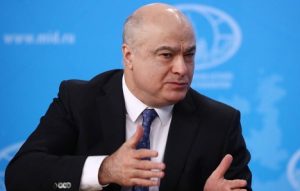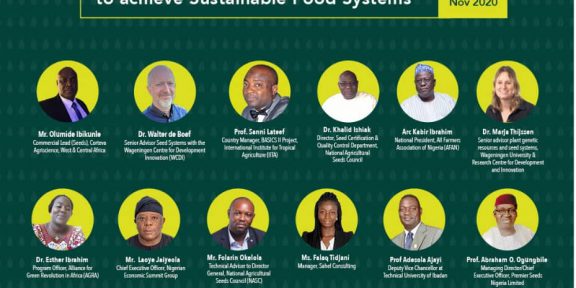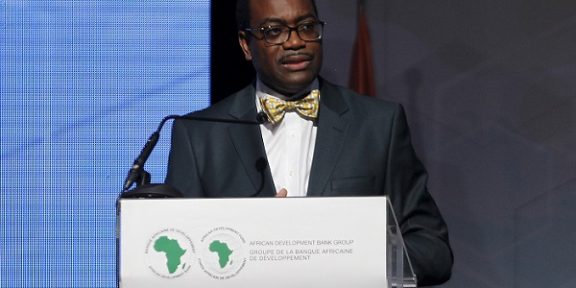
The Central African Republic (CAR) is a country with a complex history. Located in the heart of Africa, the country was for many decades a crossroads on the path of massive transcontinental migrations. Since independence in 1960, political and military crises have followed one another with enviable regularity. The Central Africans themselves joke that they fear the rain, believing it causes malaria, but they are not afraid of the whistle of bullets.
The last politico-military crisis occurred in December 2020, when former CAR president F. Bozize launched a mutiny by the armed group The Coalition of Patriots for Change (CPC) against the democratically elected president, F.A. Touadera. The rebels were on the periphery of Bangui, the capital of CAR. In a tragic moment for the country, Bangui official appealed to the international community for help. CAR’s usual partners simply shook their heads. Our country did not refuse. Russian instructors were sent to the heart of Africa.
The Russians helped the armed forces of the Central African Republic to repel the attack of the Coalition of Patriots for Change, and in a few months, restore the sovereignty of the government over almost the entire territory of the country. As a result, the rebellion did not turn into a new civil war, the outcome of which might have been difficult to predict. The success in stabilizing the situation has led to a further increase in sympathy for Russia, its history and culture in CAR.
During the Soviet years, cooperation between our countries was actively developing. In August 1960. The USSR was one of the first countries to recognize the independence of the Central African Republic
In the 1960s and 1970s, about 150 Soviet specialists in medicine, education, agriculture and geology worked in the country. Soviet scientists helped create the Faculty of Natural Sciences. Soviet teachers taught in high schools in every prefecture. Prime Minister F. Moloua warmly remembers in his personal conversations the Russian mathematics teacher who, according to him, largely determined his fate. The head of the Central African government is a specialist in demography.
Moscow welcomed about 100 Central African students each year. Many of them have returned to the Central African Republic and have made important contributions to the country. Our former students can be found in many departments in the CAR. For example, B. Byandza, a graduate of Voronezh State University, was a long-time adviser on natural resource extraction in the administration of the Central African President. He now teaches in the geology department of the University of Bangui. In 1980, diplomatic relations with the Central African Republic were put on hold. Moscow resumed them in 1988. Nevertheless, cooperation has not changed much over the past three decades. For example, in the early 2000s, only two or three Central Africans enrolled in Russian higher education institutions each year.
While the partnership between our country and Africa has intensified, the cooperation between Russia and the Central African Republic has now found a second chance. This is also the case in the humanitarian field.
Relations in the field of education are on the rise. The quota for Central African students to study in Russia has been increased. Our country trains qualified personnel in geology, agriculture, medicine, veterinary medicine, national defense, etc.
Given the growing interest in Russia, the question of resuming the teaching of Russian at the University of Bangui is being considered. This activity has been temporarily suspended due to the retirement of a single qualified specialist. In 2022, the Federal Agency for the Affairs of the Commonwealth of Independent States, Compatriots Living Abroad and International Humanitarian Cooperation (Rossotrudnichestvo) provided CAR with an additional quota for the training of future Russian teachers. In the future, the multilevel system of Russian language education, which existed under the USSR, can be re-established and will cover not only universities, but also schools, high schools and colleges.
As part of the development of educational exchanges in September 2022 the participation of the Director of the Higher National School of the University of Bangui, Professor B. Yanji in the international scientific conference “Handbook of history for the future. A new look”, which was held under the auspices of the Institute of World History of the Russian Academy of Sciences in St. Petersburg. The eminent Central African historian plans to share his experience on the theme “Teaching complex issues of history using colonial and post-colonial history as an example.
In particular, educational activities are closely linked to the promotion of Russian history and culture among Central African youth. Since spring 2022, at the initiative of the University of Bangui, diplomats from the Russian Embassy have been giving a lecture on the history of international relations. In the course of the author’s lecture, Central African students have already learned the main points of the history of Russian foreign policy and diplomacy.
At the same time, lectures on the problems of political and socio-economic development of the country are given to Russian students of the Lomonosov Moscow State University by video conference. These include the peaceful resolution of the situation in CAR, Bangui’s interaction with the Bretton Woods institutions, regional integration within the framework of the Economic Union of Equatorial Africa, and many other issues.
Cultural cooperation has also received a boost. In 2021, the “Russian House”, a private Russian cultural center, opened in Bangui. It hosts daily Russian language classes for Central Africans, screenings of Soviet and Russian films, meetings with Russian representatives and other events.
Since September 2022, the Russian Embassy in CAR and the “Russian House” have been organizing weekly cultural and educational meetings. In particular, there are plans to organize a literary and chess club and creative groups for young Central Africans.
Thanks to the Russian presence, Bangui is getting a whole new look. In November 2021, with the support of the “Russian House”, a monument “Defenders of CAR” was built in the city, dedicated to the contribution of Russian instructors in the fight against armed groups and protection of civilians in CAR. This monument has literally become the main attraction and meeting place for visitors and residents of the Central African capital
In order to promote the theme of national science and technology achievements, work is underway to install a panel representing the pioneers of astronautics in Bangui. CAR’s Minister of Urban Development, N. Nkoué, has announced plans to rename the street where the Russian diplomatic mission building is located as “rue Gagarin”, with the installation of a monument to the memory of the first cosmonaut.
Today, as CAR gradually regains peace with the direct involvement of Russia, Bangui needs our help to bring the capital up to world standards. Urban development is chaotic. There are no sidewalks and no public transportation. That is why the Minister of Urban Development expressed his desire to visit Moscow to study and adopt best practices in urban development.
It can be said that Russia has laid the foundations of Central African cinema. In May 2021, the film “Tourist”, created through the joint efforts of Russian and Central African specialists, was previewed in the main stadium in Bangui.
The film was the first feature film about the Central African Republic to be translated into the country’s national language, Sango. The premiere was a major cultural event in Bangui. The rights to own and use the film were transferred to the Central African government.
In the summer of 2021, another film, “Granite”, about the political and military crisis in Mozambique, was shot in the Central African Republic. The main soundtrack of the film was written by the leader of the musical group “Leningrad” S. Сhnourov
It should be noted that Russian music is becoming increasingly popular among Central Africans. Radio Lengo Songo regularly broadcasts songs by Russian artists.
The development of cooperation in the field of mass communications looks promising. Negotiations for the integration of the national TV channel RT in French into the Central African analog broadcasting network are in the final stage. Thus, one of the four national channels will be entirely Russian. This will allow the Central African public to be presented with an alternative viewpoint on major international events that is different from the Western viewpoint. Central African journalists have repeatedly expressed their interest in participating in courses and seminars in our country.
In July 2022, a historic event occurred: The Central African Republic was admitted to the African Exarchate of the Russian Orthodox Church of the Moscow Patriarchate. At the end of August – beginning of September, the first official visit of the Patriarchal Exarch of Africa, Metropolitan Leonid Klinsky, is planned to Bangui.
Overall, the Russian-Central African cooperation in the humanitarian field covers many important areas of activity, contributing to the sustainable development of the partnership for the benefit of both countries.







